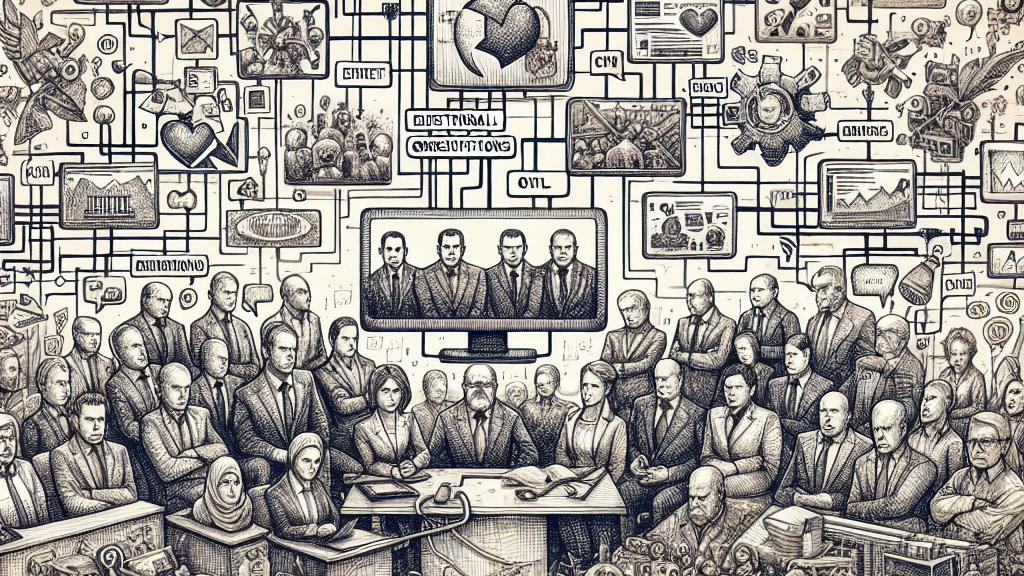Exploring New Trends in Online Discussions Related to Ukraine and Russia
Overview
- Pro-Russian narratives are gaining momentum online, reflecting complex viewpoints about the conflict.
- Online criticisms reveal deep frustrations over leaders’ responsibilities and negotiation tactics.
- The humanitarian crisis in Ukraine demands urgent attention, affecting millions of lives.

The Emergence of New Pro-Russian Narratives
In the digital landscape, an interesting phenomenon is taking place: pro-Russian narratives are emerging with surprising vigor. Recently, social media users have been crafting compelling posts that not only defend Russia's actions but also challenge Western leaders, especially Ukrainian President Volodymyr Zelenskyy. They allege that the West overlooks Ukraine's appreciation for military support, fostering a narrative of imbalance. For instance, a popular tweet stated, "While Zelenskyy shouts for help, what about the gratitude that should flow the other way?" Such examples highlight the deeper emotional ties and historical grievances driving these discussions. Social media has become a battleground for ideas, shaping perceptions about the conflict in ways traditional media cannot. It’s crucial now more than ever to pay attention to these evolving dialogues, as they may significantly influence broader public opinion.
The Debate Over Security Responsibility
As the situation unfolds, fervent debates are emerging regarding the responsibilities of international leaders towards Ukraine's security. Critics online argue that the United States and other allies must prioritize Ukraine's sovereignty during negotiations. A poignant example of this is when Zelenskyy faced pressure during talks, leading many to question why Ukraine should concede vital territorial rights. Posts like, "Why should Ukraine be the one to compromise?" resonate deeply within the community, reflecting a rising frustration. Commentators emphasize that real people are involved, and these discussions must not overlook the voices of ordinary Ukrainians facing unprecedented challenges. By giving a platform to these voices, the online conversations are shifting from mere political commentary to heartfelt pleas for recognition and respect, underscoring the emotional stakes tied to national pride and identity.
The Ongoing Humanitarian Crisis
While online rhetoric heats up, the humanitarian crisis in Ukraine becomes increasingly urgent. Recent reports indicate that over three million children are suffering, with their education disrupted and access to vital resources severely impacted. For example, amidst the chaos, many children have lost their schools—places meant for learning and safety—turning dreams of the future into mere shadows of what once was. In vivid detail, a UNICEF report illustrated how families struggle daily to find food and water, creating an atmosphere of despair. Yet, amid these hardships, social media becomes a tool for mobilization, as users share calls for action with hashtags like #AidForUkraine. Organizations like UNICEF and various NGOs are urging donations, rallying the world to respond swiftly to alleviate the suffering faced by so many. In essence, these online conversations are not just about sharing awareness; they are a clarion call for compassion and solidarity, compelling the global community to act with urgency.

Loading...